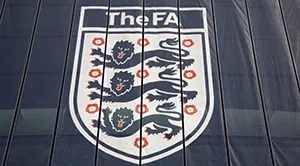 The Football Association (FA) has announced that the player liaison officer of Swansea City, Huw Lake, has been suspended for sports betting. Mr Lake has held the position of player liaison officer of the football club for two decades, and as revealed by the FA, he had placed over 2,470 bets between April 3rd, 2018, and September 24th, 2023.
The Football Association (FA) has announced that the player liaison officer of Swansea City, Huw Lake, has been suspended for sports betting. Mr Lake has held the position of player liaison officer of the football club for two decades, and as revealed by the FA, he had placed over 2,470 bets between April 3rd, 2018, and September 24th, 2023.
All of the said wagers concerned football games, and 130 of the bets were wagers against the victory of Swansea City. His suspension will last 12 months, and in addition to this penalty, he has also been mandated to pay a £1,500 fine.
The FA Appealed the Initial Disciplinary Actions on the Grounds of Them Being Too Lenient
 It should be noted that the independent Regulatory Commission that took disciplinary action against Mr Lake had initially decided to suspend nine months of the said ban. This decision was strongly criticised by the FA, and the association was also against the length of the suspension in general. As a result, the FA filed a notice of appeal.
It should be noted that the independent Regulatory Commission that took disciplinary action against Mr Lake had initially decided to suspend nine months of the said ban. This decision was strongly criticised by the FA, and the association was also against the length of the suspension in general. As a result, the FA filed a notice of appeal.
One of the main reasons for the appeal had to do with the above-mentioned 130 bets, seeing as the seriousness of such misconduct warranted far harsher punishment, according to the FA. The association thus alleged that the Commission’s disciplinary measures were “so unduly lenient as to be unreasonable” and far too close to the six-month minimum. The FA also noted that the Commission had not found information on a wager that had allegedly been placed based on inside information.
In addition, a six-month suspension (which lasted from September 2023 until March 2024) that had been imposed by Swansea City had served as a mitigating factor that influenced the Commission’s verdicts on both the ban length and the nine-month suspension. Another mitigating factor was what the FA considered to be “speculation” on how Mr Lake could lose his job due to the ban and find it difficult to become employed afterwards.
The FA was against both of the above factors being taken into account when the Commission was determining Mr Lake’s punishment. Firstly, an argument was made on how the same mitigating factor must not be used for two independent decisions. In addition, the FA also believed that there had been no “evidential basis” when it came to Mr Lake’s future employment and, thus, that such speculation should not have been considered in the first place. Finally, the FA argued that the employment-related reasoning did not factor in the seriousness of Mr Lake’s misconduct.
An Independent Appeal Board Ruled Against Making the Ban Shorter
 Although the independent Regulatory Commission defended its position on the matter and even stated that Mr Lake had provided his own evidence regarding the risk of losing his job position, an Appeal Board tasked with determining whether to honour the FA’s appeal did not fully agree with the Commission’s judgement.
Although the independent Regulatory Commission defended its position on the matter and even stated that Mr Lake had provided his own evidence regarding the risk of losing his job position, an Appeal Board tasked with determining whether to honour the FA’s appeal did not fully agree with the Commission’s judgement.
The Appeal Board stressed that a Commission can and, in fact, should factor in concrete penalties imposed by employer clubs when it comes to determining disciplinary action. The Board also stated that the length of the ban (12 months) was neither “Wednesbury unreasonable” nor “unduly lenient to the extent of being unreasonable.”
However, when addressing the matter of the ban’s partial suspension, the Board deemed the Commission’s decision to be flawed. According to the Board, reasoning for suspension must be “clear and compelling,” and no evidence from Swansea City had been presented regarding Mr Lake’s future employment situation. Factoring in the same mitigating factor when determining both the length of the ban and its partial suspension was also criticised by the Board. Therefore, the Board overruled the ban’s suspension, and Mr Lake is to remain prohibited from all football activities for 12 months in total. The said ban commenced on March 25th, 2024, immediately after the Swansea City-issued penalty ended.
- Author


